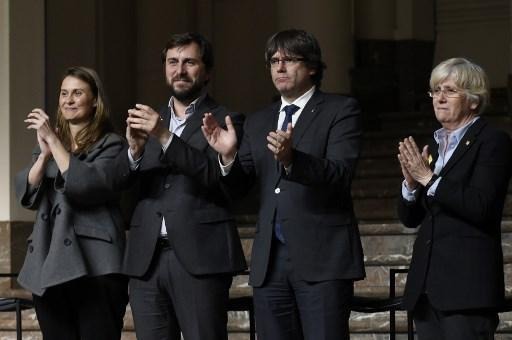The Defence Team for Carles Puigdemont and the four other Catalan ministers “in exile” in Belgium will wholeheartedly play the “political trial” card. They will do so on Friday when they appear before the court in chambers. The court is due to rule upon the execution of the European Arrest Warrant issued against them by Madrid. The lawyers, Michelle Hirsch and Christophe Marchand, who represent the two ex-ministers Toni Comin and Meritxell Serret, explained this to Le Soir and De Standaard yesterday.
The Defence Team for the five former Catalan politicians say that the deposed President for the Generalitat government in Catalonia and his former ministers are not being prosecuted in Spain for acts amounting to crimes. No acts have been clearly identified with responsibility attributed to given individuals. On the contrary, the Defence Team consider that the Spanish courts are accusing the individuals based upon their political opinions, and acts which fall under individual civil liberties. The Defence Team will use this defence as their common strategy when before the court in chambers.
Michelle Hirsch says, “It is the entire political process, from their electoral campaign and their victory, through to the political decisions or our clients, upon which the arrest warrant [against each of the former politicians] is based.” Moreover, Christophe Marchand flags up the fact that the texts of the five arrest warrants are identical. This is so although the individuals held different posts in government.
The Catalans’ Defence Team say that the offences of embezzlement, forceful resistant to a public officer executing the law or a lawful order and insurrection, of which they are accused amongst other offences, cannot be investigated under the “double imposition” rule. Under this principle the action which constitutes a criminal offence in Spain must also be a criminal offence under Belgian law. This is, in particular, because violence constitutes an important component of the last two offences, but it has not, in any way, been established under the terms of the arrest warrant delivered. Michelle Hirsch concludes, “There is no reference to criminal acts in the arrest warrants...This warrant is therefore political, therefore manifestly unreasonable.”
The Brussels Times

